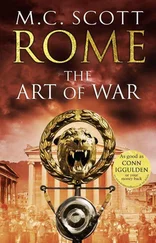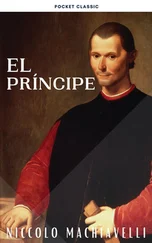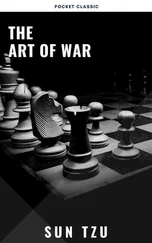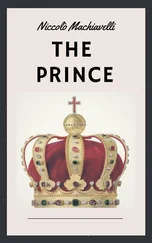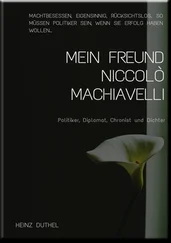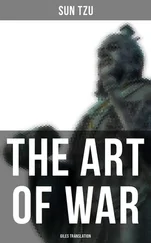COSIMO
You cannot do anything more pleasing for me and for the others than this. But if it is not painful for you to speak, it will never be painful for us to listen. But at this discussion may be long, I want help from these, my friends, and with your permission, and they and I pray you one thing, that you do not become annoyed if we sometimes interrupt you with some opportune question.
FABRIZIO
I am most content that you, Cosimo, with these other young people here, should question me, for I believe that young men will become more familiar with military matters, and will more easily understand what I have to say. The others, whose hair (head) is white and whose blood is icy, in part are enemies of war and in part incorrigible, as those who believe that the times and not the evil ways constrain men to live in such a fashion. So ask anything of me, with assurance and without regard; I desire this, as much because it will afford me a little rest, as because it will give me pleasure not to leave any doubts in your minds. I want to begin from your words, where you said to me that in war ((which is my profession)) I have not employed any of the ancient methods. Upon this I say, that this being a profession by which men of every time were not able to live honestly, it cannot be employed as a profession except by a Republic or a Kingdom; and both of these, if well established, will never allow any of their citizens or subjects to employ it as a profession: for he who practices it will never be judged to be good, as to gain some usefulness from it at any time he must be rapacious, deceitful, violent, and have many qualities, which of necessity, do not make him good: nor can men who employ this as a profession, the great as well as the least, be made otherwise, for this profession does not provide for them in peace. Whence they are obliged, either to hope that there will be no peace or to gain so much for themselves in times of war, that they can provide for themselves in times of peace. And wherever one of these two thoughts exists, it does not occur in a good man; for, from the desire to provide for oneself in every circumstance, robberies, violence and assassinations result, which such soldiers do to friends as well as to enemies: and from not desiring peace, there arises those deceptions which Captains perpetrate upon those whom they lead, because war hardens them: and even if peace occurs frequently, it happens that the leaders, being deprived of their stipends and of their licentious mode of living, raise a flag of piracy, and without any mercy sack a province.
Do you not have within the memory of events of your time, many soldiers in Italy, finding themselves without employment because of the termination of wars, gathered themselves into very troublesome gangs, calling themselves companies, and went about levying tribute on the towns and sacking the country, without there being any remedy able to be applied? Have you not read how the Carthaginian soldiers, when the first war they engaged in with the Romans under Matus and Spendius was ended, tumultuously chose two leaders, and waged a more dangerous war against the Carthaginians than that which they had just concluded with the Romans? And in the time of our fathers, Francesco Sforza, in order to be able to live honorably (comfortably) in times of peace, not only deceived the Milanese, in whose pay he was, but took away their liberty and became their Prince. All the other soldiers of Italy, who have employed the military as their particular profession, have been like this man; and if, through their malignity, they have not become Dukes of Milan, so much more do they merit to be censured; for without such a return ((if their lives were to be examined)), they all have the same cares. Sforza, father of Francesco, constrained Queen Giovanna to throw herself into the arms of the King of Aragon, having abandoned her suddenly, and left her disarmed amid her enemies, only in order to satisfy his ambition of either levying tribute or taking the Kingdom. Braccio, with the same industry, sought to occupy the Kingdom of Naples, and would have succeeded, had he not been routed and killed at Aquilla. Such evils do not result from anything else other than the existence of men who employ the practice of soldiering as their own profession. Do you not have a proverb which strengthens my argument, which says: War makes robbers, and peace hangs them? For those who do not know how to live by another practice, and not finding any one who will support them in that, and not having so much virtu that they know how to come and live together honorably, are forced by necessity to roam the streets, and justice is forced to extinguish them.
COSIMO
You have made me turn this profession (art) of soldiering back almost to nothing, and I had supposed it to be the most excellent and most honorable of any: so that if you do not clarify this better, I will not be satisfied; for if it is as you say, I do not know whence arises the glory of Caesar, Pompey, Scipio, Marcellus, and of so many Roman Captains who are celebrated for their fame as the Gods.
FABRIZIO
I have not yet finished discussing all that I proposed, which included two things: the one, that a good man was not able to undertake this practice because of his profession: the other, that a well established Republic or Kingdom would never permit its subjects or citizens to employ it for their profession. Concerning the first, I have spoken as much as has occurred to me: it remains for me to talk of the second, where I shall reply to this last question of yours, and I say that Pompey and Caesar, and almost all those Captains who were in Rome after the last Carthaginian war, acquired fame as valiant men, not as good men: but those who had lived before them acquired glory as valiant and good men: which results from the fact that these latter did not take up the practice of war as their profession; and those whom I named first as those who employed it as their profession. And while the Republic lived immaculately, no great citizen ever presumed by means of such a practice to enrich himself during (periods of) peace by breaking laws, despoiling the provinces, usurping and tyrannizing the country, and imposing himself in every way; nor did anyone of the lowest fortune think of violating the sacred agreement, adhere himself to any private individual, not fearing the Senate, or to perform any disgraceful act of tyranny in order to live at all times by the profession of war. But those who were Captains, being content with the triumph, returned with a desire for the private life; and those who were members (of the army) returned with a desire to lay down the arms they had taken up; and everyone returned to the art (trade or profession) by which they ordinarily lived; nor was there ever anyone who hoped to provide for himself by plunder and by means of these arts. A clear and evident example of this as it applies to great citizens can be found in the Regent Attilio, who, when he was captain of the Roman armies in Africa, and having almost defeated the Carthaginians, asked the Senate for permission to return to his house to look after his farms which were being spoiled by his laborers. Whence it is clearer than the sun, that if that man had practiced war as his profession, and by means of it thought to obtain some advantage for himself, having so many provinces which (he could) plunder, he would not have asked permission to return to take care of his fields, as each day he could have obtained more than the value of all his possessions. But as these good men, who do not practice war as their profession, do not expect to gain anything from it except hard work, danger, and glory, as soon as they are sufficiently glorious, desire to return to their homes and live from the practice of their own profession. As to men of lower status and gregarious soldiers, it is also true that every one voluntarily withdrew from such a practice, for when he was not fighting would have desired to fight, but when he was fighting wanted to be dismissed. Which illustrates the many ways, and especially in seeing that it was among the first privileges, that the Roman people gave to one of its Citizens, that he should not be constrained unwillingly to fight. Rome, therefore, while she was well organized ((which it was up to the time of the Gracchi)) did not have one soldier who had to take up this practice as a profession, and therefore had few bad ones, and these were severely punished. A well ordered City, therefore, ought to desire that this training for war ought to be employed in times of peace as an exercise, and in times of war as a necessity and for glory, and allow the public only to use it as a profession, as Rome did. And any citizen who has other aims in (using) such exercises is not good, and any City which governs itself otherwise, is not well ordered.
Читать дальше


